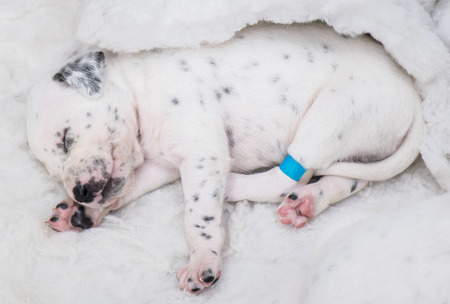Introduction to Pet Vaccination in the UK
Ensuring your cat or dog receives regular vaccinations is a crucial part of responsible pet ownership in the UK. Vaccinations play a vital role in protecting pets from a range of potentially life-threatening diseases that are still prevalent across Britain. By following the recommended vaccination schedule, you not only safeguard your beloved companion but also contribute to the wider public health by reducing the spread of infectious diseases within animal populations and, in some cases, between animals and humans. Regular vaccinations help to build immunity against common threats such as parvovirus, distemper, leptospirosis in dogs, and feline leukaemia virus or cat flu in cats. This preventative approach is endorsed by UK veterinary professionals and remains a cornerstone of modern pet healthcare.
Core Vaccines for Cats and Dogs
In the UK, core vaccines are considered essential for all cats and dogs, regardless of their lifestyle or environment. These vaccines protect pets from highly contagious and potentially life-threatening diseases that are prevalent across the country. Veterinary professionals follow established guidelines to ensure your pet receives optimal protection throughout their life.
Essential Vaccines for Dogs
| Disease | Vaccine Name | Description |
|---|---|---|
| Canine Parvovirus | Parvo | A severe viral infection causing vomiting, diarrhoea, dehydration, and can be fatal, especially in puppies. |
| Canine Distemper | Distemper | A highly infectious viral disease affecting the respiratory, gastrointestinal, and nervous systems. |
| Infectious Canine Hepatitis | Adenovirus (CAV-1) | A virus that damages the liver, kidneys, and eyes; it can be fatal if not prevented. |
| Leptospirosis | Lepto | A bacterial infection spread by water contaminated with urine from wild animals, particularly rats; it poses risks to both dogs and humans. |
Essential Vaccines for Cats
| Disease | Vaccine Name | Description |
|---|---|---|
| Feline Panleucopenia | Enteritis / FPV | A life-threatening viral infection causing severe gastroenteritis and immune suppression. |
| Feline Herpesvirus & Calicivirus | Cat Flu | Viruses responsible for upper respiratory infections; symptoms include sneezing, eye discharge, and mouth ulcers. |
| Feline Leukaemia Virus (FeLV) | FeLV Vaccine (core for kittens) | A virus that weakens the immune system and increases the risk of cancer; considered core for kittens and high-risk adults. |
The Importance of Core Vaccination
The diseases covered by core vaccines are either widespread in the UK or pose a significant threat to animal health. Immunising your cat or dog not only protects them but also helps limit the spread of these diseases within local communities. Your vet will advise on the most appropriate vaccine schedule based on your pet’s age, health status, and any specific regional risks.

3. Recommended Vaccination Schedule
Ensuring your cat or dog receives the right vaccinations at the correct time is essential for their health and well-being. In the UK, there are standard vaccination schedules recommended by veterinary professionals that help protect pets from serious infectious diseases. These schedules include an initial course for kittens and puppies, followed by regular booster doses to maintain immunity.
Kitten Vaccination Timeline
| Age | Vaccination | Notes |
|---|---|---|
| 8-9 weeks | First vaccine (core: feline enteritis, calicivirus, herpesvirus) | Initial protection starts; may also include feline leukaemia if recommended |
| 12 weeks | Second vaccine (same as above) | Essential to complete the course for full immunity |
| Annual/Biannual | Booster doses | Continued protection; frequency may vary depending on lifestyle and risk factors |
Puppy Vaccination Timeline
| Age | Vaccination | Notes |
|---|---|---|
| 6-8 weeks | First vaccine (core: distemper, parvovirus, hepatitis, parainfluenza) | Puppies should not mix with unvaccinated dogs until fully vaccinated |
| 10-12 weeks | Second vaccine (core plus leptospirosis) | Full coverage; kennel cough vaccination may be advised if needed |
| Annual/Biannual | Booster doses (including leptospirosis and kennel cough if required) | Sustains immunity; some vaccines may be given every 3 years based on vet advice |
The Importance of Boosters and Regular Checks
Your vet will advise the best schedule tailored to your pet’s needs. Booster vaccinations are crucial as immunity can wane over time. Annual health checks provide an opportunity to review your pet’s vaccination status, discuss any lifestyle changes, and ensure ongoing protection against preventable diseases.
4. Additional Vaccines and When They’re Needed
While core vaccines are essential for all cats and dogs in the UK, there are also several non-core (optional) vaccines that may be recommended based on your pet’s lifestyle, risk factors, or travel plans. Understanding which additional vaccines might be appropriate is important for providing comprehensive protection for your furry companion.
Non-Core Vaccines Explained
Non-core vaccines target diseases that are not universally prevalent but can pose a significant risk under certain circumstances. The most common non-core vaccines for pets in the UK include those for kennel cough (infectious tracheobronchitis), rabies, leptospirosis (for some regions), and feline leukaemia virus (FeLV).
When Are Non-Core Vaccines Recommended?
The decision to administer non-core vaccines should be based on a risk assessment tailored to your pet’s individual needs. Factors such as attending kennels, socialising with other animals, travelling abroad, or living in certain areas can increase exposure risks. Here’s a summary table to help you determine when these vaccines may be appropriate:
| Vaccine | Recommended For | Common Scenarios |
|---|---|---|
| Kennel Cough (Bordetella bronchiseptica) | Dogs frequently in contact with other dogs | Boarding kennels, training classes, dog shows |
| Rabies | Pets travelling outside the UK | Required for Pet Travel Scheme (PETS) compliance |
| Leptospirosis (additional strains) | Dogs exposed to water sources or rural areas | Swimming in lakes/rivers, farm visits |
| Feline Leukaemia Virus (FeLV) | Cats that go outdoors or live with infected cats | Outdoor access, multi-cat households |
Kennel Cough Vaccine
This vaccine is commonly recommended for dogs who regularly visit kennels, grooming salons, or take part in group training sessions. Although not mandatory, many boarding facilities require proof of this vaccination before accepting your dog.
Rabies Vaccine
The rabies vaccine is not routinely given to UK pets because the country is considered rabies-free. However, it becomes essential if you plan to travel with your cat or dog abroad under the Pet Travel Scheme. The vaccine must be administered at least 21 days before travel and kept up-to-date according to regulations.
Leptospirosis & Other Region-Specific Vaccines
Certain areas of the UK present higher risks for diseases like leptospirosis due to local wildlife and water sources. Your vet can advise whether an extended spectrum leptospirosis vaccine is necessary based on where you live or walk your dog.
Feline Leukaemia Virus (FeLV) Vaccine
This vaccine is particularly important for cats with outdoor access or those living in multi-cat environments where the virus may spread. Indoor-only cats may not require this protection unless their situation changes.
It’s best to discuss your pet’s daily routine and future plans with your vet during annual health checks so they can recommend an appropriate vaccination schedule tailored to your pet’s unique needs.
5. Addressing Common Concerns and Myths
When it comes to vaccinating your cat or dog, many pet owners in the UK have questions about safety, potential side effects, and whether all recommended vaccines are truly necessary. Understanding the facts can help you make informed decisions and ensure your pet remains healthy.
Vaccine Safety: What You Need to Know
Vaccines used in the UK are rigorously tested for safety and effectiveness before approval. Adverse reactions are rare, and most pets experience only mild, short-lived side effects such as slight tiredness or mild swelling at the injection site.
| Common Side Effect | Frequency | What To Do |
|---|---|---|
| Tiredness | Common | Allow rest; usually resolves within 24 hours |
| Swelling at injection site | Occasional | Monitor; should subside within a few days |
| Mild fever | Rare | Keep an eye on your pet; consult your vet if concerned |
| Allergic reaction (e.g., facial swelling) | Very rare | Seek veterinary attention immediately |
Addressing Frequently Asked Questions
Are annual boosters really necessary?
Yes. Annual boosters help maintain your pet’s immunity against common and potentially life-threatening diseases. Your vet will advise if some vaccines can be given less frequently based on your pet’s lifestyle.
Can my indoor cat skip vaccinations?
No. Even indoor cats are at risk from viruses that may be brought into the home via shoes or clothing. Vaccination protects them from unexpected exposure.
Is it safe to vaccinate older pets?
Absolutely. Older pets can benefit greatly from continued protection, as their immune systems may weaken with age. Your vet can tailor a schedule suitable for senior animals.
Busting Common Myths
- Myth: Vaccines overload my pet’s immune system.
Fact: Modern vaccines are designed to be safe and effective, stimulating the immune system without causing harm. - Myth: Natural immunity is enough.
Fact: Relying on natural immunity leaves pets vulnerable to serious diseases that are easily preventable through vaccination.
Practical Advice for Pet Owners
- If you notice any unusual symptoms after vaccination, contact your vet for advice.
- Keep a record of your pet’s vaccination schedule and appointments.
- If you have concerns about specific vaccines or possible reactions, discuss these with your veterinary professional—they’re there to support you and your pet.
The best way to protect your cat or dog is by following the UK’s recommended vaccination schedule, ensuring both their health and peace of mind for you as a responsible owner.
6. Working with Your Local Vet
Building a strong partnership with your local vet is essential for keeping your cat or dog healthy and ensuring they stay up-to-date with their vaccinations. Veterinary professionals in the UK are not only knowledgeable about the recommended vaccination schedule, but they also understand the unique needs of pets in your area. Here are some tips to help you develop a positive relationship with your vet and support your pet’s long-term wellbeing:
Tips for Building a Positive Relationship
Tip |
Description |
|---|---|
Regular Communication |
Keep in touch with your vet about your pets health and vaccination needs. Don’t hesitate to ask questions or seek advice during consultations. |
Book Routine Check-ups |
Annual health checks provide an opportunity to discuss vaccinations, spot potential health issues early, and keep your records up-to-date. |
Follow Vet Recommendations |
Your vet may tailor vaccination schedules based on your pet’s age, lifestyle, and local disease risks. Trust their expertise for the best care. |
Create a Vaccination Calendar |
Work with your vet to set reminders for upcoming boosters. Many UK practices offer text or email alerts to help you stay organised. |
Be Open About Concerns |
If you have worries about side effects or costs, share them honestly. Vets can provide reassurance, alternatives, or payment options if needed. |
The Role of UK Veterinary Practices
Veterinary clinics across the UK are committed to supporting pet owners through tailored care and expert advice. Many practices also offer ‘pet health plans’ that include routine vaccinations at a discounted rate, making it easier to manage costs while ensuring comprehensive protection for your furry friend.
Keeping Vaccinations Up-to-Date
Staying on top of booster appointments is vital for ongoing immunity against serious diseases. Ask your vet about joining a reminder service or using apps designed to track veterinary appointments. By maintaining regular contact and following professional guidance, you’ll give your cat or dog the best chance at a healthy, happy life.


